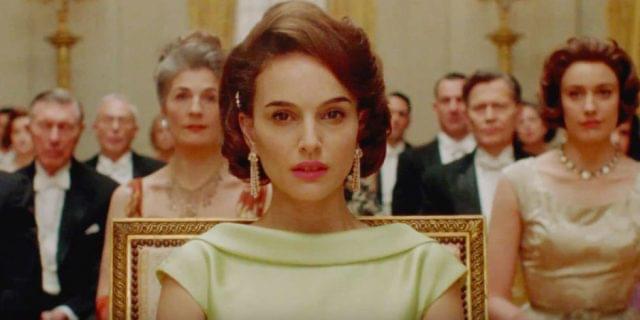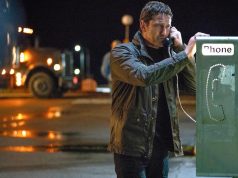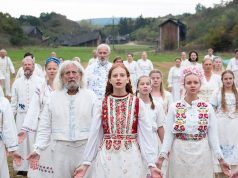
The first thing we hear in “Jackie” is Mica Levi’s groaning, indispensable musical score, which conveys sonically the sensation of having the ground fall out from under you. It accompanies our first sight of Natalie Portman as the newly widowed Jackie Kennedy, who, with equal parts steely-eyed dignity and devastation, looks like the music sounds. Thanks to this perfect pairing of sound and image, we’re instantly in the film’s grip.
It doesn’t let go, either, nor does it deviate much from the intent suggested by those first moments. This is the story of the JFK assassination and its aftermath as experienced by Jackie, filtered through her emotions and memories. The objective facts (as far as they’re known) are accounted for and respected — director Pablo Larraín (“NO”) is an expert at historical recreation — but it’s a highly subjective film, often impressionistic, more mood piece than docudrama.
The framing device is that a journalist (Billy Crudup) has come to Jackie’s home to interview her just days after the funeral — an obscene imposition on a grieving widow, but a necessary part of the national healing process. Jackie is painfully aware of her position as a private citizen who has an obligation to let the people hear from her. She tells the reporter that he can only print what she approves, and she calmly informs him several times over the course of their conversation that something she has just said didn’t happen. (The people must not hear of her chain smoking, for instance.) There is no debate over these terms. She’s Jacqueline Kennedy; the journalist doesn’t even have a name.
The interview structure lets the film hopscotch dreamily through time, like flipping back and forth through the pages of a book. We see contrasting scenes of Jackie looking in the mirror on Air Force One: first preparing herself to smile and wave from the Dallas motorcade with her husband (played by Caspar Phillipson), later smoothing her clothes and wiping the blood from her face in the aftermath. We see the making of her famous 1962 White House tour video, where she seems surprisingly ill-at-ease in front of the camera, a hint that she wasn’t the perfectly poised queen of Camelot that America wanted her to be.
We see snippets of the assassination itself, a signature moment in American mythology from which Larraín and screenwriter Noah Oppenheim have wrung new, fresh emotional horror. We see Jackie being comforted by Robert Kennedy (Peter Sarsgaard), by White House social secretary Nancy Tuckerman (Greta Gerwig), by the awkwardly deferential Lyndon Johnson (John Carroll Lynch) and Lady Bird (Beth Grant), by a priest (John Hurt). Jackie is dazed, shell-shocked, flitting in and out of conversations, constantly torn from her reverie to deal with some painfully quotidian concern like clearing JFK’s things out of the Oval Office or planning the funeral.
It’s a compelling portrait of grief, but it’s more than that: a portrait of public grief. With noble grace, Jackie accepts the terribly unfair fact that she can’t run off and mourn in private, that her husband’s legacy will be defined in part by what she does in these next few days. She knows, though she doesn’t like it, that optics and symbols are important, and that every detail of the funeral and her public behavior will be scrutinized for its significance.
Through it all, in public and private, Portman’s portrayal of Jackie is almost startlingly immersive. She impersonates the voice and accent, sure, but more than that, she brings all of Jackie’s internal struggles to the surface as she navigates the slow-moving nightmare she’s found herself in. Even in her vulnerable moments, she’s an icon of strength, and the film is an invaluable glimpse into the mind and heart of a tragic figure.
A- (1 hr., 39 min.; )





